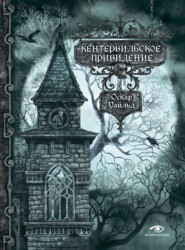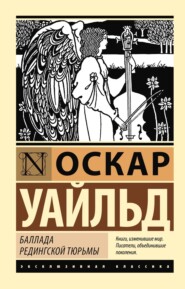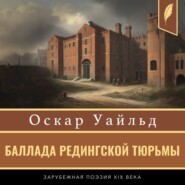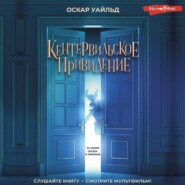По всем вопросам обращайтесь на: info@litportal.ru
(©) 2003-2024.
✖
The Duchess of Padua
Автор
Год написания книги
2017
Настройки чтения
Размер шрифта
Высота строк
Поля
Thou wilt not kill him till I bid thee do it,
Or else I go to mine own house, and leave
Thee ignorant, and thy father unavenged.
Guido
Now by my father’s sword —
Moranzone
The common hangman
Brake that in sunder in the public square.
Guido
Then by my father’s grave —
Moranzone
What grave? what grave?
Your noble father lieth in no grave,
I saw his dust strewn on the air, his ashes
Whirled through the windy streets like common straws
To plague a beggar’s eyesight, and his head,
That gentle head, set on the prison spike,
For the vile rabble in their insolence
To shoot their tongues at.
Guido
Was it so indeed?
Then by my father’s spotless memory,
And by the shameful manner of his death,
And by the base betrayal by his friend,
For these at least remain, by these I swear
I will not lay my hand upon his life
Until you bid me, then – God help his soul,
For he shall die as never dog died yet.
And now, the sign, what is it?
Moranzone
This dagger, boy;
It was your father’s.
Guido
Oh, let me look at it!
I do remember now my reputed uncle,
That good old husbandman I left at home,
Told me a cloak wrapped round me when a babe
Bare too such yellow leopards wrought in gold;
I like them best in steel, as they are here,
They suit my purpose better. Tell me, sir,
Have you no message from my father to me?
Moranzone
Poor boy, you never saw that noble father,
For when by his false friend he had been sold,
Alone of all his gentlemen I escaped
To bear the news to Parma to the Duchess.
Guido
Speak to me of my mother.
Moranzone
When thy mother
Heard my black news, she fell into a swoon,
And, being with untimely travail seized —
Bare thee into the world before thy time,
And then her soul went heavenward, to wait
Thy father, at the gates of Paradise.
Guido
A mother dead, a father sold and bartered!
I seem to stand on some beleaguered wall,
And messenger comes after messenger
With a new tale of terror; give me breath,
Mine ears are tired.
Moranzone
When thy mother died,
Fearing our enemies, I gave it out
Thou wert dead also, and then privily
Conveyed thee to an ancient servitor,
Who by Perugia lived; the rest thou knowest.
Guido
Saw you my father afterwards?
Moranzone
Ay! once;
In mean attire, like a vineyard dresser,
Or else I go to mine own house, and leave
Thee ignorant, and thy father unavenged.
Guido
Now by my father’s sword —
Moranzone
The common hangman
Brake that in sunder in the public square.
Guido
Then by my father’s grave —
Moranzone
What grave? what grave?
Your noble father lieth in no grave,
I saw his dust strewn on the air, his ashes
Whirled through the windy streets like common straws
To plague a beggar’s eyesight, and his head,
That gentle head, set on the prison spike,
For the vile rabble in their insolence
To shoot their tongues at.
Guido
Was it so indeed?
Then by my father’s spotless memory,
And by the shameful manner of his death,
And by the base betrayal by his friend,
For these at least remain, by these I swear
I will not lay my hand upon his life
Until you bid me, then – God help his soul,
For he shall die as never dog died yet.
And now, the sign, what is it?
Moranzone
This dagger, boy;
It was your father’s.
Guido
Oh, let me look at it!
I do remember now my reputed uncle,
That good old husbandman I left at home,
Told me a cloak wrapped round me when a babe
Bare too such yellow leopards wrought in gold;
I like them best in steel, as they are here,
They suit my purpose better. Tell me, sir,
Have you no message from my father to me?
Moranzone
Poor boy, you never saw that noble father,
For when by his false friend he had been sold,
Alone of all his gentlemen I escaped
To bear the news to Parma to the Duchess.
Guido
Speak to me of my mother.
Moranzone
When thy mother
Heard my black news, she fell into a swoon,
And, being with untimely travail seized —
Bare thee into the world before thy time,
And then her soul went heavenward, to wait
Thy father, at the gates of Paradise.
Guido
A mother dead, a father sold and bartered!
I seem to stand on some beleaguered wall,
And messenger comes after messenger
With a new tale of terror; give me breath,
Mine ears are tired.
Moranzone
When thy mother died,
Fearing our enemies, I gave it out
Thou wert dead also, and then privily
Conveyed thee to an ancient servitor,
Who by Perugia lived; the rest thou knowest.
Guido
Saw you my father afterwards?
Moranzone
Ay! once;
In mean attire, like a vineyard dresser,

















